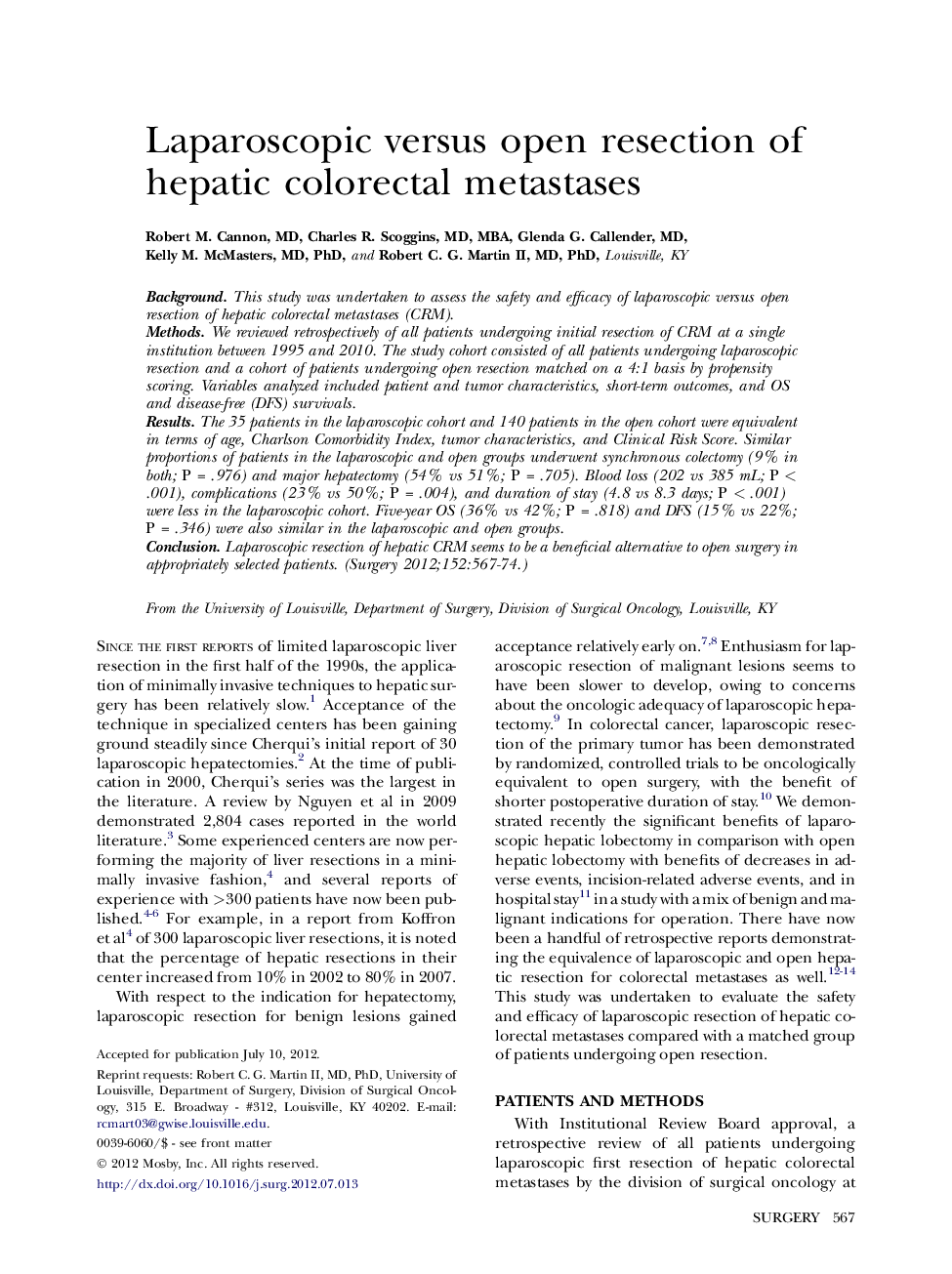| Article ID | Journal | Published Year | Pages | File Type |
|---|---|---|---|---|
| 4307823 | Surgery | 2012 | 8 Pages |
BackgroundThis study was undertaken to assess the safety and efficacy of laparoscopic versus open resection of hepatic colorectal metastases (CRM).MethodsWe reviewed retrospectively of all patients undergoing initial resection of CRM at a single institution between 1995 and 2010. The study cohort consisted of all patients undergoing laparoscopic resection and a cohort of patients undergoing open resection matched on a 4:1 basis by propensity scoring. Variables analyzed included patient and tumor characteristics, short-term outcomes, and OS and disease-free (DFS) survivals.ResultsThe 35 patients in the laparoscopic cohort and 140 patients in the open cohort were equivalent in terms of age, Charlson Comorbidity Index, tumor characteristics, and Clinical Risk Score. Similar proportions of patients in the laparoscopic and open groups underwent synchronous colectomy (9% in both; P = .976) and major hepatectomy (54% vs 51%; P = .705). Blood loss (202 vs 385 mL; P < .001), complications (23% vs 50%; P = .004), and duration of stay (4.8 vs 8.3 days; P < .001) were less in the laparoscopic cohort. Five-year OS (36% vs 42%; P = .818) and DFS (15% vs 22%; P = .346) were also similar in the laparoscopic and open groups.ConclusionLaparoscopic resection of hepatic CRM seems to be a beneficial alternative to open surgery in appropriately selected patients.
